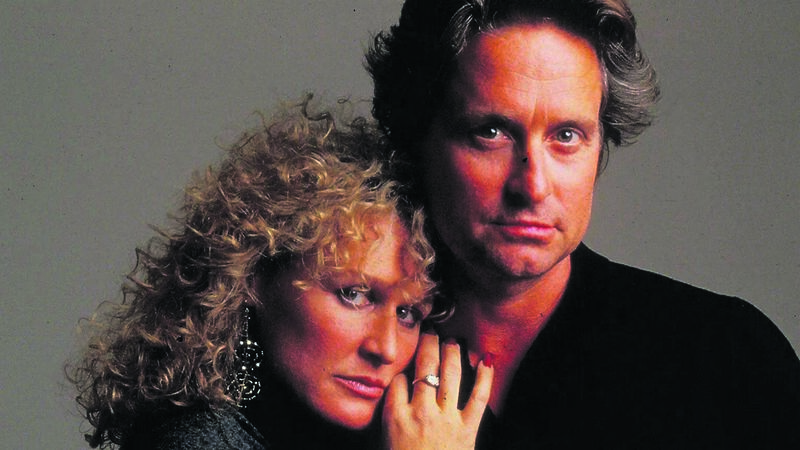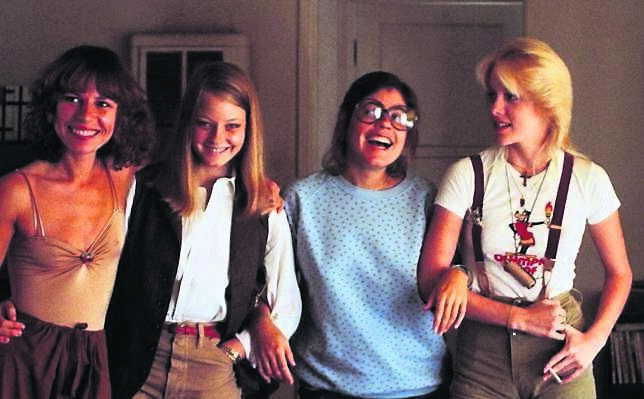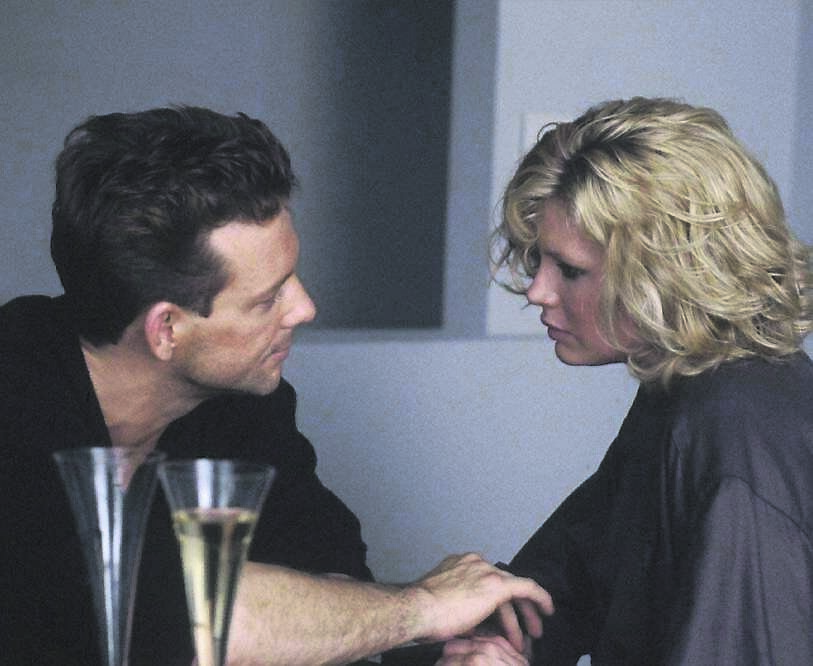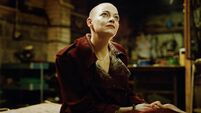All steamed up... film season at Triskel has seriously sexy vibes

Fatal Attraction, released in 1987 and starring Michael Douglas and Glenn Close, is a psychological thriller that shocked viewers and ignited discussions about infidelity and obsession
The time of the erotic thriller has passed in the eyes of Hollywood.
The allure of steamy films that once graced the silver screen has shifted to television shows, especially on networks like HBO.
Scenes of passionate encounters, intense love affairs, jealousy, and anger were hallmarks of films from the 1980s and early 1990s. The director who had the most significant impact is Adrian Lyne, an English filmmaker whose work is embedded in American culture and film lore.
Triskel Cinema is offering cinemagoers the chance to catch several of Lyne’s most salacious offerings with its latest programme, Little Pieces Of Humanity: The Films Of Adrian Lyne, which begins on July 26.
Chris O’Neill, head of programming at Triskel, explains why he wanted to bring these films to Cork.
“The films of Adrian Lyne are the epitome of when Hollywood still made mature movies for adults.

“Fatal Attraction, in which a family man has a brief affair with a woman who then goes on to stalk him and his family, and Indecent Proposal, about a rich stranger offering a young couple $1 million to sleep with the wife, are such iconic films. They were hugely successful at the worldwide box office when they were released.”
Fatal Attraction, released in 1987, is a psychological thriller that shocked viewers and ignited discussions about infidelity and obsession.
Michael Douglas plays Dan Gallagher, a Manhattan lawyer whose brief affair with Glenn Close’s unsettling Alex Forrest devolves into a terrifying ordeal for Dan and his unsuspecting wife (Anne Archer).
The film became a major box office success and received six Academy Award nominations. Its legendary boiling bunny scene quickly became notorious, and the film’s depiction of female rage and male guilt played a key role in reshaping the erotic thriller genre for years to come.
Lyne’s Indecent Proposal, from 1993, remains a thought-provoking landmark in romantic drama, sparking discussions about love, fidelity, and moral dilemmas.
Starring Demi Moore, Woody Harrelson, and Robert Redford, the film revolves around a morally complex wager: $1 million for a night with another man’s wife.
A box office success and culturally significant, Lyne’s sleek, emotionally charged direction and polished aesthetic embody the melodrama of the early 1990s.
O’Neill points out that neither Incident Proposal nor Fatal Attraction would likely receive such attention in today’s landscape.
“They both caused so much debate and controversy in the media, amongst cinema audiences, and around the table at dinner parties. Can you imagine a Hollywood studio releasing ‘big’ films like that these days and the public lining up around the block to see them?”
It is for this reason that O’Neill has chosen to showcase Lyne’s work.
“Lyne’s films represent that era of film-making which we don’t have anymore, and this is why I wanted to host this season celebrating his work - to give Cork audiences an opportunity to experience them on the big screen.”
O’Neill also says these films need to be seen on the big screen. “They are so finely crafted with fine performances, striking cinematography and eclectic music scores and songs, that seeing them in a cinema setting really allows you to appreciate the skill that went into making them.”
Flashdance, directed by Lyne in 1983, is a vibrant mix of music, dance, and romance that left a lasting impact on a generation. The film stars Jennifer Beals as Alex, a steel mill welder by day and an aspiring dancer by night, delivering an iconic performance that beautifully combines grit and glamour.
The film has an electrifying soundtrack. Irene Cara’s hit song, Flashdance… What A Feeling, won the Oscar for Best Original Song, and the film also received nominations for Best Editing and Best Sound. Beyond its accolades, Flashdance sparked a fashion craze and played a key role in popularising the modern music video aesthetic in film.
Jacob’s Ladder, from 1990, is a haunting psychological thriller featuring Tim Robbins as a Vietnam veteran who struggles with terrifying hallucinations and a fractured sense of reality.
Though it was overlooked during awards season, the film received critical acclaim for its bold storytelling and surreal visuals.
Its nightmarish imagery has influenced later horror classics, such as Silent Hill, solidifying its legacy as a cult favourite that redefined the boundaries of psychological and existential horror.

Foxes, Lyne’s debut film, released in 1980 and produced by Cork resident David Puttnam, poignantly explores teenage girlhood in disillusioned Los Angeles suburbs after the 1970s. Starring Jodie Foster, Cherie Currie, and Scott Baio, the film is noted for its authentic depiction of adolescent struggles and fractured families.
Although it didn’t receive major award nominations, it developed a cult following and contributed to a wave of youth-centric dramas that addressed real-life issues.
Lyne’s atmospheric direction foreshadowed the visual sensuality he would later perfect.
In 1986, Lyne released 9½ Weeks, a provocative exploration of desire and emotional dominance, featuring Mickey Rourke and Kim Basinger. Although it was controversial upon release, its erotic aesthetic and moody visuals left a lasting impact on the genre.
The film became a cult hit internationally, influencing fashion, music videos, and future erotic thrillers, solidifying Lyne’s reputation for blending sensuality with psychological depth.
O’Neill emphasises that it is the human characters created by Lyne that define this collection of classic films.
“These are movies with stories about credible human characters, which is what made them popular back then and so endearing now.”
Little Pieces Of Humanity: The Films of Adrian Lyne runs from July 26, see www.triskelartscentre.ie







